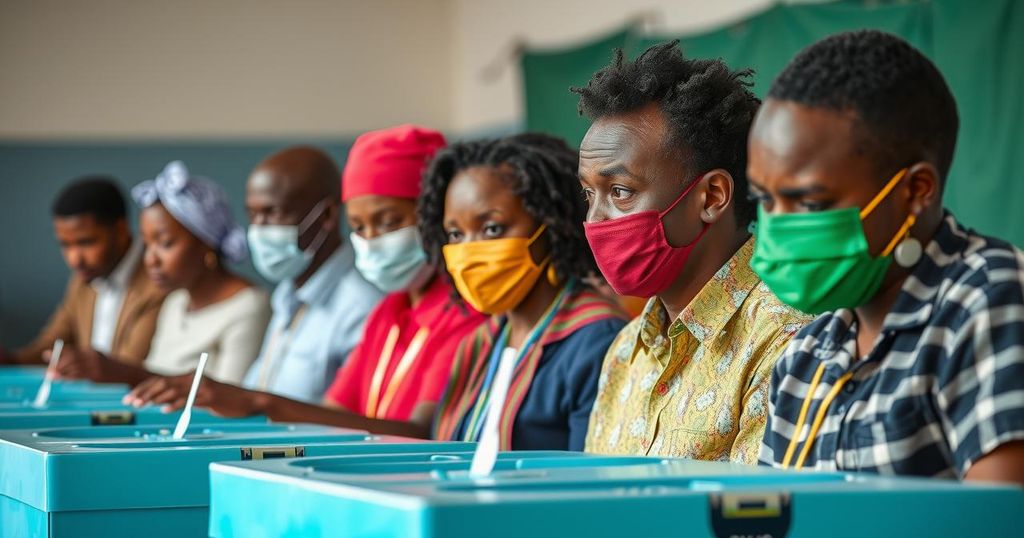Voters in the Comoros are casting ballots for a new 33-seat parliament amid allegations of electoral irregularities from the opposition. President Azali Assoumani, who has ruled since 1999, faces criticism for authoritarianism and potential dynastic succession. Despite calls for a boycott by some opposition groups, others are participating to highlight governmental flaws. Results are expected by Friday.
Voters in the Comoros are currently participating in parliamentary elections aimed at filling the 33-seat legislature of the Indian Ocean archipelago. This electoral event finds its backdrop in the controversy surrounding President Azali Assoumani’s re-election last year, which the opposition claims was marred by significant irregularities—a contention denied by officials from Assoumani’s ruling party. On Sunday, polling stations saw early opening as approximately 338,000 registered citizens cast their votes.
The last parliamentary elections in Comoros took place in January 2020, and nearly 100 candidates have been approved by the nation’s Supreme Court to run in this election. Opposition members have criticized President Assoumani for authoritarian measures, alleging that he is positioning his elder son, Nour El-Fath, to inherit power upon the culmination of his presidential term in 2029. Assoumani has held power since a coup in 1999 and has successfully won three subsequent elections, having recently endowed his son with expansive authorities over government affairs.
Although certain opposition factions, such as Juwa, led by former President Ahmed Abdallah Sambi—currently serving a life sentence—have urged a boycott of the elections, others, including the Hope of the Comoros party, have opted to participate. Hamidou Karihila, a candidate representing the latter group, stated, “The Azali regime is weakened… by participating in these elections we are contributing to further exposing the flaws in its system and accelerating its inevitable fall.” The electoral results are anticipated by Friday.
The Comoros, consisting of islands situated in the Indian Ocean, has a troubled political history characterized by various coup d’états since its independence from France in 1975. President Azali Assoumani has been a prominent figure in this turbulent political landscape, ascending to power through a coup in 1999 and subsequently winning multiple elections. The re-election of Assoumani a year ago sparked allegations from opposition groups concerning electoral integrity, which fostered an atmosphere of dissent and calls for reform. The country has been navigating a complex web of political tensions, especially regarding succession plans that some speculate involve Assoumani’s eldest son.
In summary, the parliamentary elections in Comoros underscore a significant moment in the nation’s political development, reflecting ongoing tensions between the ruling party and opposition groups. With claims of irregularities and the shadow of authoritarianism looming over President Assoumani’s regime, the current elections are not only pivotal for governance but also for the democratic aspirations of the Comorian people. The electoral outcome, expected soon, holds the potential to reshape the political landscape amidst calls for reform and participation against a backdrop of dissent.
Original Source: www.merimbulanewsweekly.com.au






